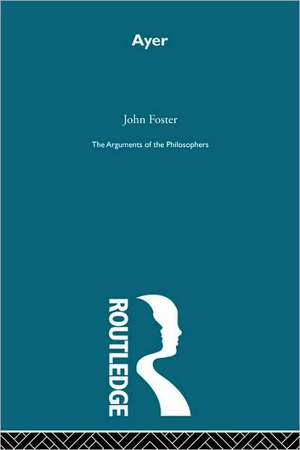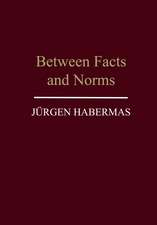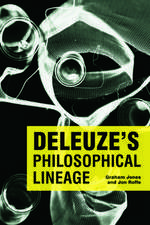Ayer-Arg Philosophers
Autor John Fosteren Limba Engleză Paperback – 7 apr 2009
| Toate formatele și edițiile | Preț | Express |
|---|---|---|
| Paperback (1) | 416.26 lei 6-8 săpt. | |
| Taylor & Francis – 7 apr 2009 | 416.26 lei 6-8 săpt. | |
| Hardback (1) | 1185.00 lei 6-8 săpt. | |
| Taylor & Francis – 6 mai 1999 | 1185.00 lei 6-8 săpt. |
Preț: 416.26 lei
Nou
Puncte Express: 624
Preț estimativ în valută:
79.65€ • 83.44$ • 66.01£
79.65€ • 83.44$ • 66.01£
Carte tipărită la comandă
Livrare economică 09-23 aprilie
Preluare comenzi: 021 569.72.76
Specificații
ISBN-13: 9780415488198
ISBN-10: 0415488192
Pagini: 324
Dimensiuni: 156 x 234 x 17 mm
Greutate: 0.45 kg
Ediția:1
Editura: Taylor & Francis
Colecția Routledge
Locul publicării:Oxford, United Kingdom
ISBN-10: 0415488192
Pagini: 324
Dimensiuni: 156 x 234 x 17 mm
Greutate: 0.45 kg
Ediția:1
Editura: Taylor & Francis
Colecția Routledge
Locul publicării:Oxford, United Kingdom
Public țintă
Postgraduate and UndergraduateCuprins
Part I Meaning and Verification 1 The criterion of significance 2 The a priori and the analytic 3 The principle of verification 4 Is there a rationale for the verification principle? 5 Empirical atomism 6 Ayer’s reductionism 7 The relativity-factor 8 Ayer’s critique of ethics Part II Knowledge and Scepticism 1 Introduction 2 Ayer’s definition of knowledge 3 The truth-reliability thesis 4 Specifying the mode of arrival 5 The reason-furnishing thesis 6 The furnishing of reasons 7 The nature of scepticism 8 The four possible solutions 9 Perception 10 The nature of perceptual experience 11 Sense-experience and the physical world 12 Scepticism reconsidered Part III Man and Nature 1 The problem of induction 2 Hume’s argument 3 A priori probability 4 Ayer’s own position 5 The nomological-explanatory solution 6 Ayer’s account of causation 7 The reducibility thesis 8 The unity of the mind 9 Free will












